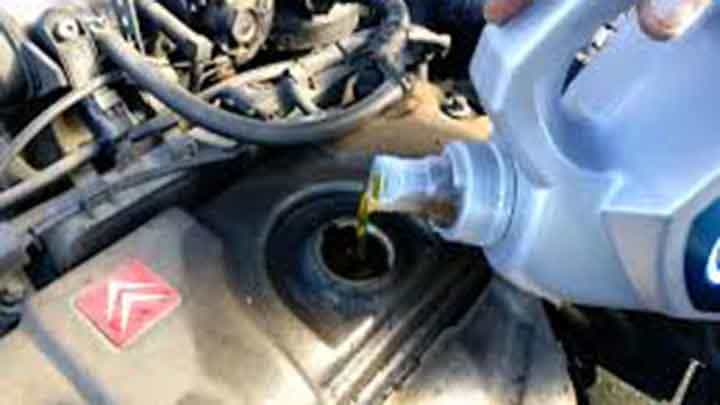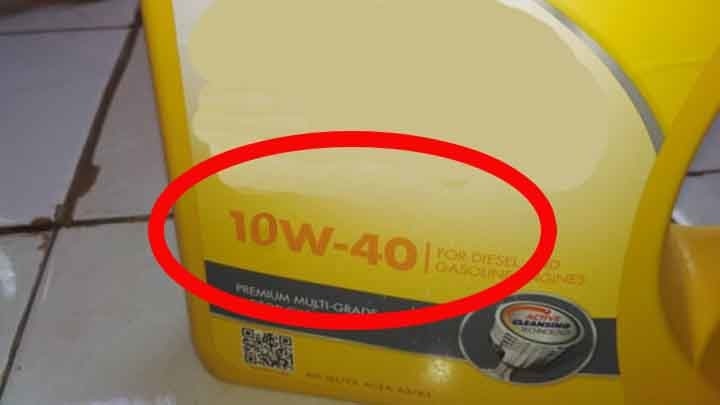Last Updated on April 25, 2020 by themechanic

If you’re a car owner, then you already know the importance of having good oil in your engine. Oil is like the blood of your vehicle because it lubricates the engine’s components the same way blood lubricates the organs of your body. You cannot have a functional engine without the right oil circulating through it. Not only does oil keep the engine’s components running smoothly, but it also prevents the engine from overheating too because there is less friction taking place.
If you check the owner’s manual of your vehicle, it’ll tell you which type of oil that you’re supposed to use in your engine. You’ll see a numerical code which signifies the viscosity of the engine oil, such as 10W-30, 20W-50, 5W-20, etc. The viscosity is important because it pertains to the thickness of your oil under certain pressures and temperatures. If you’re dealing with colder weather outside, then oil becomes thicker and has more trouble flowing inside the engine. So, you would want a thinner oil if you normally drive in colder areas. But if you drive in hotter areas, you’ll want a thicker oil because the heat causes it to thin out more.
Wrong Engine Oil Symptoms
It can get confusing when it comes to choosing the right oil for your car engine. Due to the seasonal changes, there are certain times of the year which are hot and other times which are cold. Therefore, you may have to switch oils throughout the year in order to always get the best engine performance possible. Otherwise, if you use the wrong engine oil in your vehicle, it could jeopardize the engine performance and possibly cause excessive wear and tear to its components.
The symptoms of using the wrong engine oil are noticeable right away. Below are the top 5 symptoms and the happens if you putting the wrong engine oil in your car. If you notice at least 2 or 3 of these symptoms, then you should get an oil change with a better type of oil for your vehicle.
1) Bad Fuel Economy
Engine components must stay lubricated in order to move fast and perform at their maximum potential. But if you use the wrong oil in your engine, then these components must work extra hard just to produce the same amount of power. Anytime the engine must work harder, it requires more gasoline. So, you’ll end up spending more money on gas.
2) Burning Smell
If your oil grade is too thin and the temperatures outside are too hot, then it’ll generate too much heat in the engine. The first signs of this will be a burning odor coming from the engine. This may eventually be followed by an overheated engine. Don’t let it get to that point.
3) Ticking Noises
When you have thick oil in your engine and it is cold outside, the various metal components of the engine might cling against each other when you first go to start it up. This will cause ticking noises to come from the engine. The noises should gradually stop after a couple of minutes.
Read also:
- Rocker Arm Function, Failure Symptoms and Cost to Replace
- PCV Valve Function, Bad Symptoms and Cost to Replace
- Tips to Clean Fuel Injectors (6 Easy Steps)
4) Oil Leaks
Most people with newer vehicles use synthetic oil rather than conventional crude oil. But if you use synthetic oil in an older vehicle made over 20 years ago, then it could create an oil leak. Synthetic oils are formulated to flow through tighter areas a lot more easily. In an older car engine, this creates a leaky situation.
5) Difficulty Starting Vehicle
Like mentioned above, if you use thick oil in your vehicle and the environment around you is cold, then the oil won’t flow very fast in your engine. This means the engine’s components won’t receive enough lubrication to smoothly function. Then you’ll regularly have trouble starting your vehicle and getting the engine to stay running normally.


